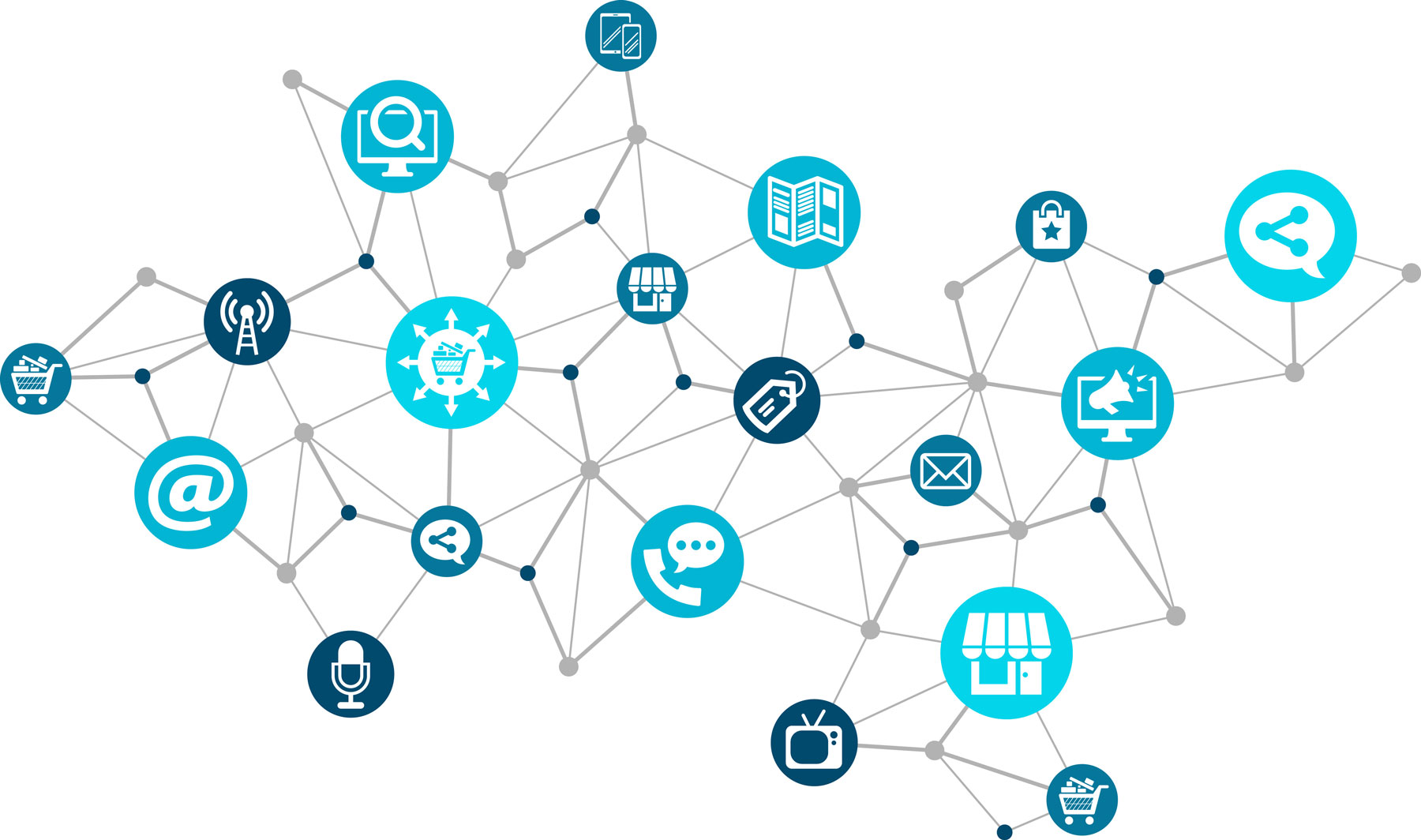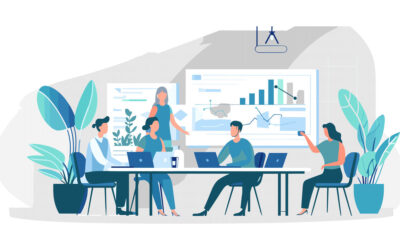Omnichannel marketing offers numerous benefits:
- Higher order rates
- Improved customer loyalty
- Ability to compete against larger brands
- Improved digital visibility and brand coverage
- More significant return on investment (compared to the traditional multichannel strategies)
In the very dynamic and online-driven business landscape of 2024, small businesses need to adapt to consumer preferences and embrace an omnichannel marketing strategy.
At Aspire Digital Solutions, we recognize the importance of an effective omnichannel marketing strategy in driving growth and success for your business. By showing you how to expertly leverage digital marketing channels like SEO, social media, and targeted ads in coordination with offline methods, we know how to make sure your brand delivers a consistent experience that really resonates with consumers across any platforms your business uses.
From collecting accurate data to personalizing interactions, nurturing relationships, and converting prospects into customers, omnichannel marketing takes advantage of the many and varied opportunities offered by digital marketing. This strategy unifies them all into a cohesive, streamlined approach. Let’s take a closer look at how omnichannel marketing can help drive your business’ growth in 2024 and beyond.
What is Omnichannel Marketing, and how can it Help my Business?
Simply put, omnichannel marketing is a comprehensive strategy that integrates and combines your online and offline marketing channels to deliver a unified and consistent brand experience to consumers.
Imagine a customer interacting with your brand across several different touchpoints, like your website, social media, an email campaign, and physical stores. Omnichannel marketing is the strategy that makes sure every interaction feels connected and cohesive, regardless of the channel.
Key Components of Omnichannel Marketing
- Consistent Branding Across All Channels: In omnichannel marketing, arguably the most important aspect is maintaining consistent branding across all touchpoints. Whether a customer is browsing your site, engaging with your social media posts, or visiting your store, they need to see a unified and consistent brand message and identity.
- Personalized Interactions: One of the biggest advantages of omnichannel marketing is your ability to have personalized interactions with customers. And by leveraging data and analytics, businesses can customize their communication to meet the expectations of their target customers.
- Real-time Engagement: Omnichannel marketing lets businesses engage with customers in real-time, which means you are providing assistance and support whenever and wherever it’s needed. Whether it’s on the live chat on your website, instant responses on your social media accounts, or personalized email communications – real-time engagement means you’re making stronger connections with your potential customers.
- Competitive Advantage for Small Businesses: In a landscape dominated by larger enterprises and corporations, omnichannel marketing levels the playing field for small businesses. By offering a seamless and truly unified customer experience across all channels, small businesses can compete effectively and stand out from the competition.
To summarize all of that: omnichannel marketing is a holistic marketing strategy that is designed to bridge the gap between online and offline channels, and provide consumers with the consistent branding, personalized interactions, and the real-time engagement that they expect today.
The Importance of Data-driven Insights to your Omnichannel Marketing Strategy
Collecting accurate data and using it holistically across the customer journey is extremely important for businesses of all sizes. By unifying all of the areas of your digital marketing with an omni-channel strategy, you are allowing all of your business’ messaging to be informed by prior conversations and encounters – this data is invaluable in improving customer experience and retention.
Even the smallest, most local businesses can leverage an omnichannel approach to deliver compelling and personalized experiences that are on par with larger competitors. By using tools that gather information from both online and offline interactions, you can learn valuable information about your customers’ behaviors and preferences. With these insights, you can make sure you’re serving relevant content at every stage of the customer journey.
To succeed in an omnichannel world, you need to be agile. Real-time analytics are one of the most important tools for omni-channel marketing success. Businesses need to be able to react quickly to consumer behavior and market trends to maintain a competitive edge. Real-time data analysis means that you can make informed decisions, strategy adjustments, and allocate the right resources accordingly.
Fortunately, AI and algorithm-driven digital marketing solutions are more accessible than ever. These online tools help gather data across all of your channels, turn it into easy-to-digest information, and then provide real-time insights. By using these insights, even small businesses can supercharge their marketing efforts and compete effectively against larger competitors. This upward spiral of marketing success can only be driven by an omni-channel strategy.
Know your Customer’s Journey, and Use that Knowledge to Provide a Seamless Experience
Customer journey mapping is another important part of omni-channel marketing. To do this, outline the steps taken by a customer from discovery to purchase and beyond. With this information, businesses can see much more about their customers’ interests, preferences, and behaviors across various channels and touchpoints. This information gives you the ability to carry out more targeted and informed marketing efforts.
Customer journey mapping requires you to consider the individual users’ experiences, what their interface preferences might be, and any external factors at each stage. By truly understanding your customer’s journey, you can adjust your omni-channel strategy to the unique needs and preferences of your target audience. This gives you the ability to create engagement and drive loyalty with relevant content, offers, and interactions. Additionally, customizing content to peoples’ individual preferences goes a long way in creating engaging experiences that land well with audiences.
Meet your Prospects Wherever They Are With a Personalized Omnichannel Marketing Approach
First, understanding audience behavior across websites, apps, social media, and community forums allows you to meet them where they are already active. And then, excellent customer service on these channels enhances customer experience and builds brand loyalty.
Omni-channel marketing integrates all marketing methods used by a business, both online and offline. Understanding audience demographics, their daily lives, and the preferences they have through buyer personas lets us create an accurate picture of the customer journey – from initial awareness to conversion and retention.
Social media, online ads, and email are all effective channels for lead generation. They offer businesses different opportunities to engage with potential customers in real-time, and this lets you build relationships that can lead to conversions. Yet they all exist in very different environments, often on entirely different platforms. Coordinating and unifying these different methods is one of the keys to an omnichannel marketing strategy.
Social media platforms like Facebook, LinkedIn, and Twitter let businesses reach a huge audience through targeted advertising, organic posts, and interactive content. With engaging social media campaigns, businesses can generate leads by capturing user information through contests, polls, or lead magnets, for example. Social listening also allows businesses to monitor conversations related to their industry or brand, and lets you engage with potential customers in a personalized manner.
Email marketing is another powerful tool for lead generation in an omnichannel strategy. With email campaigns businesses can nurture leads by sending them valuable content, promotions, or exclusive offers directly to their inboxes. Additionally, segmenting email lists based on user behavior or demographics lets businesses customize messaging and increase conversion chances.
In the competitive marketing environment of 2024, harnessing omni-channel customization provides a significant edge. For example, personalized emails have an open rate that is 26% higher and a click-through rate 111% higher than non-personalized ones (Campaign Monitor). Businesses excelling at personalization can achieve up to 40% more revenue (Aberdeen Group).
These already useful tools are even stronger when they work together. With an omni-channel marketing approach, social media, email marketing, ads, your website, and more work together to create a truly seamless and consistent user experience for potential customers. From there, integrating these channels with other areas like customer service, online shopping, appointment booking, or in-store experiences further strengthens relationships with leads and drives growth.
Embrace an Omnichannel Marketing Strategy to Drive your Business in 2024
Omnichannel marketing represents a customer-centric approach that lets businesses deliver consistent experiences across multiple channels. By understanding the strategy behind omnichannel marketing (collecting accurate data, personalizing interactions, nurturing relationships, and converting prospects into customers) you can provide seamless customer experiences, and you can meet your modern audience’s high expectations.
As we look forward to 2024, embracing an omnichannel approach will be especially important for small businesses that want to thrive in the digital age. Schedule a consultation today and learn how Aspire can help you reach your goals through omnichannel marketing. Let’s grow together!







0 Comments